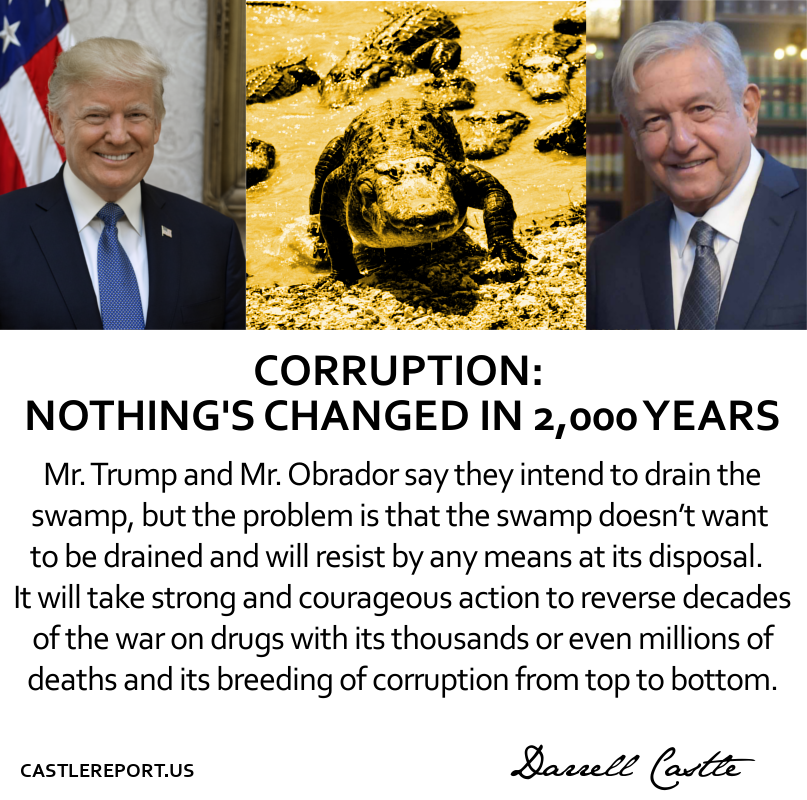
Corruption – Nothing’s Changed in 2,000 Years
Podcast: Download
Darrell Castle talks about how the war on drugs has led to corruption both here in America and in Mexico, as well as a strategy for addressing it.
Transcription / Notes
CORRUPTION—NOTHING’S CHANGED IN 2000 YEARS
Hello, this is Darrell Castle with today’s Castle Report. Today is Friday, August 17, 2018, and in this Report I will be talking about the subject of corruption, especially from the standpoint of the governments of the United States and Mexico. In Mexico, recently elected President Andres Manuel Lopez Obrador will take office December 1st, armed with a public mandate to end corruption and violence caused by war with the drug cartels.
His political party, the National Regeneration Movement, will have a majority in both houses of Congress. It’s been a long time since a Mexican President elect came to power with such an opportunity to actually complete his political agenda. He campaigned much as did Donald Trump, who told us he would “drain the swamp”. I doubt if Mr. Obrador ever used that term, but the concept is similar as is the agenda. He and his incoming Interior Minister obviously view the cartel violence and corruption problems as linked together.
Mr. Obrador reportedly gave Interior Minister Olga Sanchez Cordero instructions to tackle the cartel problems by whatever means seem necessary. The legalization of drugs, especially marijuana and opium based drugs, would appear to be one means she is going to try. Recently I read where Hillary Clinton said, in reference to the incoming Mexican administration, they can’t legalize drugs there’s too much money in it.
The reason there’s too much money in drugs is because they are illegal. If they were legal, there would still be profit in producing and selling them, about as much profit as any other agricultural product. The more harsh the laws against drugs, the more profitable they become. Now the Mexican narcotraficantes have discovered the tremendous appetite Americans have for opioids, especially fentanyl, which can be prescribed legally by doctors but not in enough quantity to satisfy those addicted. It is devastating because it is more addictive than heroin and more profitable. I’ve discovered that it takes about $3300 to produce enough fentanyl to bring 1 million dollars street value in America.
Another tactic being discussed is some type of amnesty for the cartel members, but the problem is that almost all cartel members have been guilty of the most brutal crimes against people imaginable. The usefulness of amnesty then will be limited, especially when you consider that those applying for it probably won’t survive the process.
What Ms. Cordero says she has in mind is at least considering the legalization and regulation of the opium trade, perhaps legalizing the sale of opium gum to pharmaceutical companies for production as with any legal drug. A legal market for the country’s opium farmers would be created with the goal of stopping or at least reducing, warring over the control of opium growing areas. The drug problems associated with addiction, such as disease, crime, etc., have also started to plague Mexico as well as the United States, so stopping the violence and cartel wars would benefit both countries.
The drug wars then, are one of the things that cause corruption but if people are so offended by corruption, and if corruption at the government level is especially hated by people, what is it? What is a reasonable definition of “corruption”? The dictionary definition of corruption is impairment of integrity, virtue or moral principle, and depravity. That is a fine definition but it doesn’t really explain why so many people are so offended by it. In many countries, especially the Middle East, such countries as Egypt and Tunisia, rulers are being deposed, not for making themselves dictators but for corruption. I would accept the definition of writer Doug Casey as being the better one; “a betrayal of trust for personal gain.”
People don’t want to get rid of their governments; they just want to believe that the new bosses will be better than the old bosses, and that government will work. Corruption is not just bribery of governments officials, it exists on both government and individual levels, so the personal gain idea is very important to people. The very idea that someone trusted would betray that trust for personal gain is especially egregious.
If that is the meaning of corruption, then what is the cause? That’s the easy question to answer. The cause is human nature and the fall of man along with the evil that lies in the human heart. Some 2000 years ago Tacitus said, “The more corrupt the state, the more numerous the laws.” Every day that Congress is in session, it makes laws because that’s its job to legislate, to make laws. The legislatures of the various state and local governments also meet and make laws. More and more laws stacked on top of laws already existing for more than 200 hundred years, all of which we are expected to obey. Laws are almost never removed from the statute books so the books get bigger and bigger. I still persist in maintaining a hard copy library at my law office and each month I wait for the new replacement books to be smaller but they are not.
Corruption is much worse on a government level than it is on an individual level. It’s easy to find corrupt corporations, corrupt churches, or corrupt individuals, but only government can legally impose its will on you at the point of a gun, so it is especially egregious. Since government is, by its very essence, force, it concentrates corruption and makes it grow and grow. Many people on the fringes of the laws passed by government look for ways to circumvent them as a means of survival in everyday life, and people are therefore more and more corrupted by the laws supposedly passed for their benefit.
These things are challenges to the rule of law itself and nothing is more important to the economic prosperity of a nation than the rule of law. According to the Wall Street Journal, in June the World Justice Project issued its 2017-2018 Rule of Law Index. There are 113 countries listed in the index and the United States ranks 19th. That’s right; the United States is no longer even in the top 10 on the rule of law index. A country’s rule of law performance is scored across eight factors: Constraints of Government Powers, Absence of Corruption, Open Government, Fundamental Rights, Order and Security, Regulatory Enforcement, Civil Justice, and Criminal Justice.
The Journal’s definition of the rule of law is comprised of four universal principles: Accountability where both government and individuals are accountable under the law; Just Laws where laws are clear, known, stable and applied evenly; Open Government whereby the processes by which the laws are enacted, and enforced are accessible fair and efficient; Accessible and impartial dispute resolution, where justice is delivered timely by competent, ethical, neutral and independent representatives who are accessible.
The richer countries of the West are normally in the top quadrant of the rule of law because without the rule of law investment becomes riskier and even tourism is curtailed. Not too many people want to vacation in countries that are inherently dangerous or where you will be required to pay bribes or face jail time.
The rule of law here in America is being hindered by the obvious corruption in the FBI, CIA, and Department of Justice, as those agencies currently exist and that state corruption, allowed to grow for many years must have influenced America’s ranking in the Index.
Along with corruption in government, the administrative state has now grown so powerful that government has ceded much of its law-making, and even enforcement, to administration where low-level bureaucrats weld such power over people’s lives that they decide whether a child can have a lemonade stand, and if the decision is no, then what the punishment will be.
Tacitus’ statement could be reversed here in 2018 America, as well, I suspect, as Mexico, i.e., the more numerous the laws, the more corrupt the state. Mr. Trump and Mr. Obrador say they intend to drain the swamp, but the problem is that the swamp doesn’t want to be drained and will resist by any means at its disposal. It will take strong and courageous action to reverse decades of the war on drugs with its thousands or even millions of deaths and its breeding of corruption from top to bottom.
Finally folks,
People are starting to question these things and that at least is a start. Mr. Obrador said he would end corruption, end cartel violence, and revitalize the Mexican economy.
I wish him God speed in his efforts and I hope the Mexican people will hold him accountable since the rule of law depends on it.
At least that’s the way I see it.
Until next time folks,
This is Darrell Castle,
Thanks for listening.
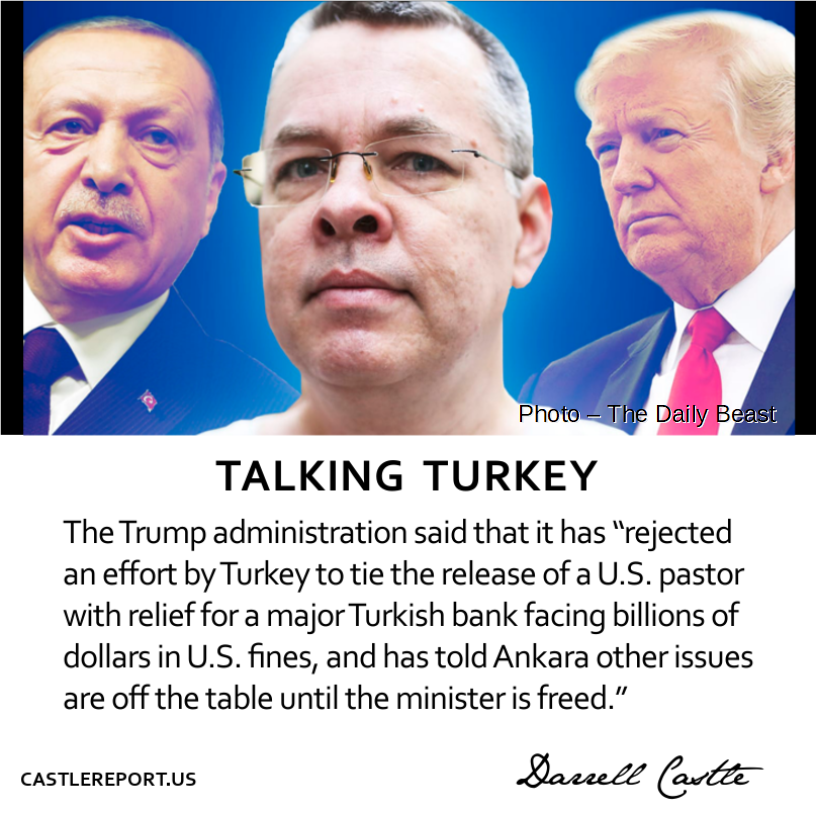
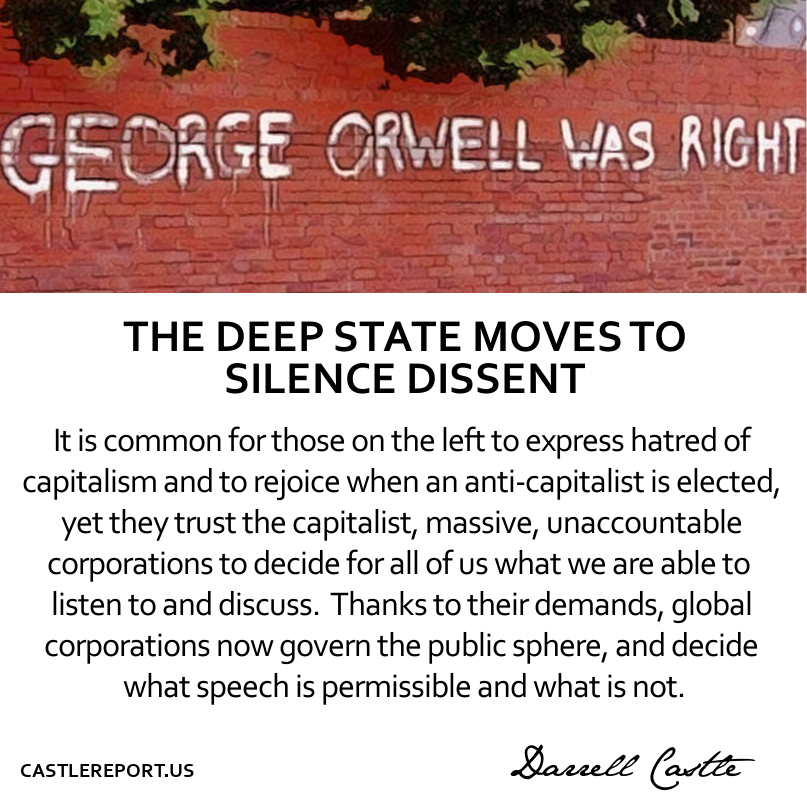

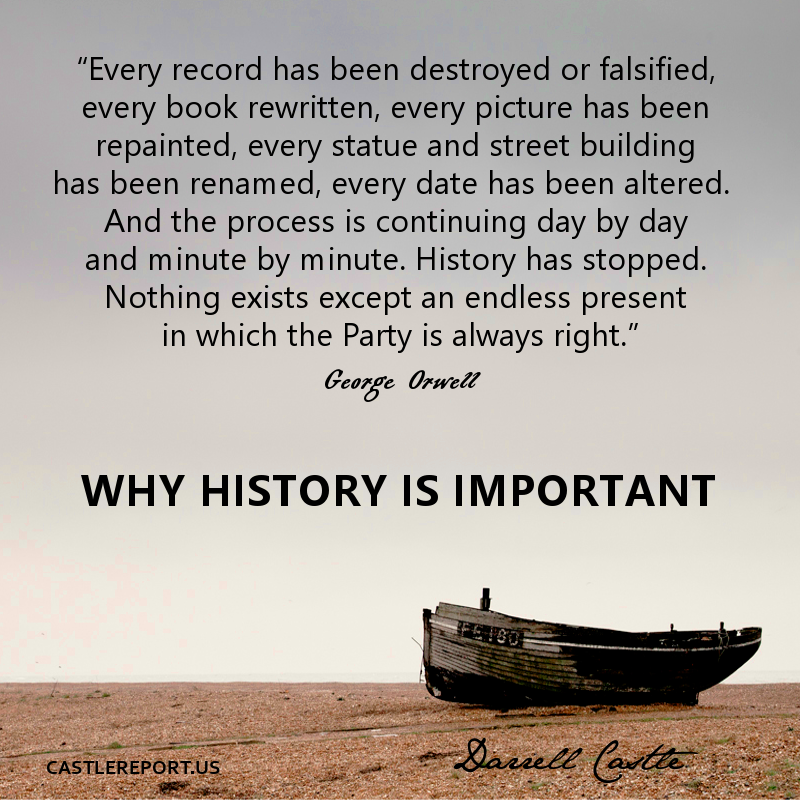

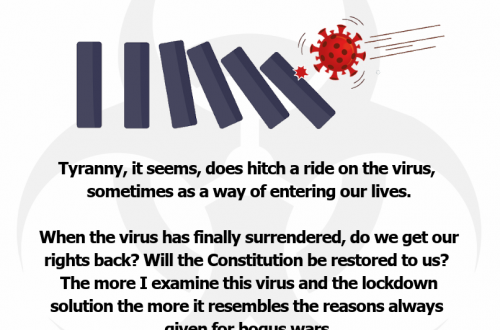
2 Comments
Bob Bowen
Darrell: I can’t remember if I ever gave you one of my business cards that I have been handing out for the last ten years or so, but if you have one please look at the BOLD letters across the top, they say: TACITUS. Under neath his name it says: “The more corrupt the State, the more numerous the laws” Tacitus died around 120 AD, so this idea must have some validity if it has been around all this time. Your message this week tells it like it is. Thanks !
Darrell
Not much really changes Bob, it just appears to change and that’s mostly marketing.
Thanks again,
DC